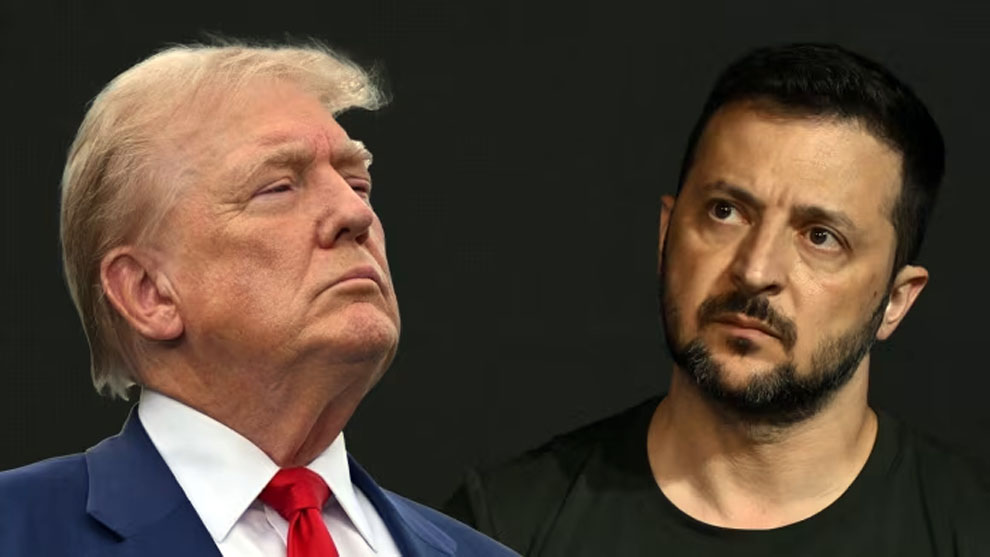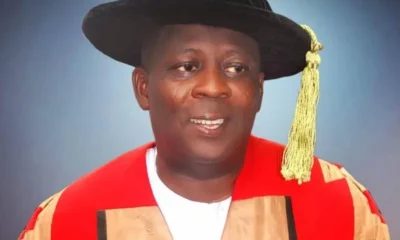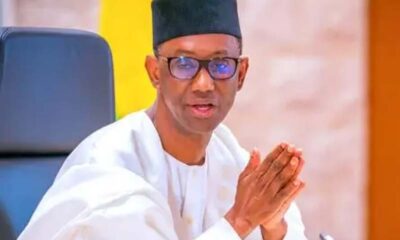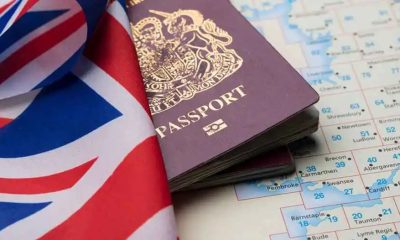International
UK invests £1.9m in West African economies

UK invests £1.9m in West African economies
The UK government’s West Africa Research and Innovation Hub (WARIH) has launched ‘Sankore’ to support economic growth by strengthening technology and innovation across West Africa, in close partnership with country governments.
UK Minister for Africa, Lord Collins, announced the call for creative proposals for the project from non-profit organisations (including UN Agencies) at a press conference on Tuesday in Accra.
The Sankore call for proposals will support the UK government’s partnership with the Government in Nigeria and Ghana on science, technology and innovation, facilitate commercialisation of innovative solutions, improve innovation policy and enhance government digital service delivery.
Named after a West African medieval center of learning, Sankore will establish new partnerships worth up to £1.9 Million with non-profit organisations (including UN agencies) in Ghana or Nigeria.
READ ALSO:
- Another boat capsizes in Zamfara, Four children dead, 12 hospitalised
- Third Mainland Bridge vandal arrested in Lagos with 21 railings
- Brain-chip can restore vision to persons born blind, says Elon Musk
At the launch of the call for proposals, the UK Minister for Africa said: “This initiative is all about how we can work together to strengthen the global technology sector, creating opportunities for rapidly growing economies with lots of potential to compete on the world stage.
“The Sankore grant fosters partnerships at its heart, with a strong message that we go far when we go together.”
Nigeria’s Minister of Innovation, Science and Technology, Uche Nnaji, said: “Sankore project is a pivotal opportunity for Nigeria to enhance its innovation landscape, by strengthening industry-science linkages and developing an enabling policy environment.
“This partnership underscores our shared commitment to developing practical solutions that lead to sustainable and inclusive growth.”
Also commenting, the British Deputy High Commissioner in Lagos, Jonny Baxter, said: “Sankore exemplifies the UK’s commitment to driving innovation and sustainable development in Nigeria.
“The project will strengthen partnerships between businesses and innovators as well as drive the development of innovative solutions that address critical gaps in priority economic sectors.
UK invests £1.9m in West African economies
International
Indonesia Flood Disaster: Death Toll Exceeds 900 as Search for Hundreds Continues

Indonesia Flood Disaster: Death Toll Exceeds 900 as Search for Hundreds Continues
The death toll from the catastrophic Indonesia floods has risen to more than 900, with hundreds still missing as rescuers struggle to reach communities cut off by last week’s rare and powerful cyclone over the Malaca Strait. The storm unleashed torrential rain and severe landslides, destroying over 100,000 homes across multiple regions.
Authorities say relief efforts remain extremely challenging, with aid being air-dropped into isolated areas where roads and bridges have been washed away. The deadly floods form part of a chain of recent extreme weather disasters across Asia, bringing the combined regional death toll — including in Sri Lanka, Thailand, Malaysia, and Vietnam — close to 2,000.
READ ALSO:
- 25 Dead in Goa Nightclub Fire After Suspected Gas Explosion in Arpora
- Doctor Charged With Sexually Assaulting 38 Patients in West Midlands Hospitals
- Shettima Inaugurates Multi-Million Naira Juma’at Mosque in Gumel
In Aceh Tamiang, among the worst-hit districts, survivors described entire villages being swept away by surging waters. Residents of Lintang Bawah Village told the BBC Indonesian service that many families survived only by taking refuge on rooftops.
Fitriana, a survivor, recounted how some villagers endured three days without food or water as they clung to their homes: “Ninety percent of the houses in our village were destroyed,” she said, leaving 300 families displaced.
Another survivor described fleeing twice — first from his own home as floodwaters reached the second floor, and then again from a nearby village inundated overnight:
“While we were sleeping, water soaked the mattresses. There was no higher ground. We survived by climbing to the second floor of my daughter-in-law’s house.”
Indonesian authorities continue emergency operations as hopes fade for those still unaccounted for. The government has pledged expanded humanitarian support as the scale of the disaster becomes clearer.
Indonesia Flood Disaster: Death Toll Exceeds 900 as Search for Hundreds Continues
BBC
International
Russia Intensifies Airstrikes on Ukraine as Zelensky, Trump Envoys Advance Peace Talks

Russia Intensifies Airstrikes on Ukraine as Zelensky, Trump Envoys Advance Peace Talks
Russia has intensified its overnight aerial attacks on Ukraine, striking multiple regions just hours after President Volodymyr Zelensky described his discussions with Donald Trump’s negotiating team as “very constructive.” The renewed assaults come amid a fresh push for a US-led peace framework aimed at ending the nearly three-year-old war.
The mayor of Kremenchuk, a key industrial city in central Ukraine, confirmed the area suffered a “massive combined strike”, damaging critical infrastructure and leaving residents without water, electricity, and heat. No fatalities have been reported so far.
Russia’s defence ministry claimed it intercepted 77 Ukrainian drones across several locations during the same period, underscoring the ongoing intensity of the conflict despite diplomatic efforts.
Zelensky said he is “determined” to continue working closely with the US after three days of detailed negotiations in Miami involving Trump’s envoy Steve Witkoff and the former US president’s son-in-law Jared Kushner. Talks focused heavily on ensuring Russia’s compliance with any future peace agreement.
READ ALSO:
- 25 Dead in Goa Nightclub Fire After Suspected Gas Explosion in Arpora
- Doctor Charged With Sexually Assaulting 38 Patients in West Midlands Hospitals
- Shettima Inaugurates Multi-Million Naira Juma’at Mosque in Gumel
The US has been mediating a multi-point peace plan, though progress remains limited as Kyiv, Moscow, and European allies differ on key proposals. European leaders have pushed for additional security guarantees for Ukraine, including the possibility of a multinational peacekeeping force, an idea Russia has rejected.
French President Emmanuel Macron, UK Prime Minister Sir Keir Starmer, German Chancellor Friedrich Merz, and Zelensky are set to meet in London on Monday to coordinate Europe’s position on the evolving peace framework. Macron reiterated France’s commitment to achieving de-escalation and a ceasefire.
Meanwhile, the US and Ukraine have jointly urged Moscow to demonstrate “a serious commitment to long-term peace.” The appeal came after Witkoff returned from Kremlin talks with Vladimir Putin, which ended without a breakthrough.
Ukraine’s new chief negotiator Rustem Umerov said he and Witkoff have “agreed on the framework of security arrangements” and discussed deterrence measures needed to secure a durable peace.
The latest wave of Russian airstrikes — following a wider barrage a day earlier condemned by European leaders — underscores the gulf between diplomatic negotiations and realities on the ground as the war grinds on.
Russia Intensifies Airstrikes on Ukraine as Zelensky, Trump Envoys Advance Peace Talks
BBC
International
25 Dead in Goa Nightclub Fire After Suspected Gas Explosion in Arpora

25 Dead in Goa Nightclub Fire After Suspected Gas Explosion in Arpora
A devastating inferno at a popular nightclub in Goa has left 25 people dead, with authorities confirming that most of the victims were employees of the establishment located in Arpora, North Goa. Several tourists are also among the casualties.
Officials say the blaze, which erupted around midnight on Saturday, was triggered by a suspected gas cylinder explosion in the club’s kitchen. The fire quickly tore through the premises, leading to scenes of panic in the bustling nightlife district.
Goa Director General of Police Alok Kumar confirmed that the fire was concentrated on the ground-floor kitchen area and has since been brought under control. Most bodies were recovered near the kitchen, reinforcing concerns that staff members bore the brunt of the tragedy.
Goa Chief Minister Pramod Sawant stated that three victims died from burn injuries, while others succumbed to suffocation. He also revealed that “three to four” tourists had been confirmed dead, though their identities and nationalities remain unknown.
According to The Indian Express, the incident occurred at Birch by Romeo Lane, a well-known club near Baga Beach, one of Goa’s busiest tourist hubs. The area is lined with nightlife venues that typically draw large crowds on weekends.
READ ALSO:
- Doctor Charged With Sexually Assaulting 38 Patients in West Midlands Hospitals
- Shettima Inaugurates Multi-Million Naira Juma’at Mosque in Gumel
- Police Launch Special Enforcement Team to Enforce Tinubu’s Ban on VIP Escorts
Witnesses described chaotic moments as screams filled the air moments after the explosion. One bystander told the BBC: “It was a normal Saturday night. Suddenly there were screams, and then we realized a massive fire had broken out. The scenes were horrific.”
Fire crews worked through the night, combing through charred debris to determine the full extent of damage and finalize victim identification. The remains of burnt furniture and décor were visible at the site on Sunday morning, now sealed off by security officials.
Victims’ bodies have been transferred to Goa Medical College in Panaji, where identification is underway before notifying families.
Chief Minister Sawant has ordered a formal inquiry into the cause of the blaze, promising that “those found responsible will face the most stringent action.” He expressed “deep grief” and extended condolences to affected families.
Indian Prime Minister Narendra Modi described the incident as “deeply saddening”.
Goa, a former Portuguese colony famed for its beaches, nightlife, and resorts, attracts millions of visitors annually. Government figures show 5.5 million tourists visited the state in the first half of the year, including 270,000 international travelers.
The tragedy adds to a growing list of fatal fires in entertainment venues across India, including recent incidents in Hyderabad, Kolkata, and Gujarat, often linked to poor safety standards and overcrowding.
25 Dead in Goa Nightclub Fire After Suspected Gas Explosion in Arpora
BBC
-

 Sports2 days ago
Sports2 days ago2026 FIFA World Cup Draw: England Draw Croatia as Brazil Face Morocco in Tournament Opener
-

 News2 days ago
News2 days agoAkpabio sues Natasha for ₦200bn over sexual harassment allegations
-

 metro3 days ago
metro3 days agoTinubu Govt Eliminates More Terrorists Than Previous Administrations — Fani-Kayode
-

 Politics2 days ago
Politics2 days agoOsogbo Youth Group Condemns APC Over Disqualification of Adegoke SAN
-

 metro1 day ago
metro1 day agoNigerian woman sparks outrage for refusing chemotherapy despite ₦30 million donations over religious Beliefs
-

 metro2 days ago
metro2 days agoFour Teenagers Killed in Banki Explosion as Borno Police Probe Deadly IED Blast
-

 Opinion3 days ago
Opinion3 days agoSiyan Oyeweso: Lessons in virtue and vanity
-

 Entertainment3 days ago
Entertainment3 days agoDStv warns subscribers of possible loss of CNN, discovery, 10 other channels in 2026













